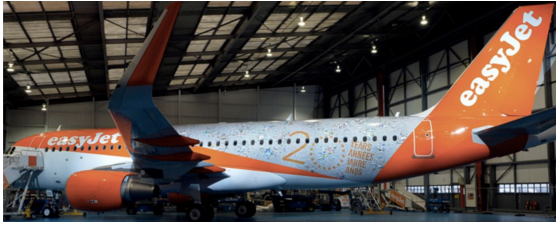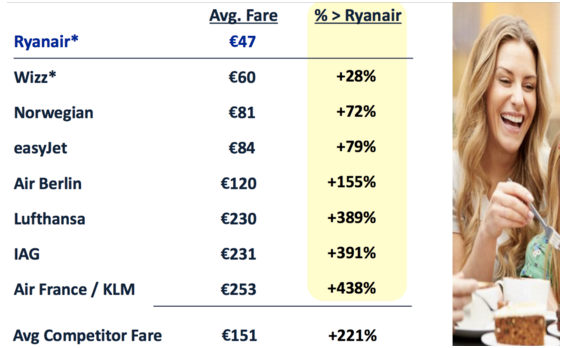EasyJet recently announced its fifth year of record profits and is well placed to deliver another strong results in the current year. However, the share price has fallen from £17.83 before the results to close at £16.83 last Friday. While investors appear to be unimpressed the valuation remains attractive.
On November 10 1995 easyJet operated its inaugural flight from London Luton to Glasgow. Sir Stelios Haji-Ioannou founded the company in March 1995 with the focus on providing cheap European flights.
Both easyJet and Ryanair took their inspiration from Southwest Airlines – “the original budget airline” – of the United States. Southwest, established in 1967, and as of 2014 is the leading US domestic airline by passenger numbers.
EasyJet celebrates its 20th birthday

Source: EasyJet website
The aim of budget airlines (or low cost carriers) is to offer low fares versus the legacy flag carriers. This has a broad appeal for the short-haul – less than three hours – flights that are the principle focus of budget airlines.
Leisure travellers generally prefer to spend money on the holiday experience, such as staying in a nice hotel, than on an expensive flight. This is less true for long-haul flights (over six hours) where comfort and service is important.
To offer low cost flights the budget airlines must keep costs low and maximise revenue. Low-ticket prices help to boost overall revenue as it helps achieve high load factors i.e. full planes.
The pricing structure is such that the first tickets bought are very low cost and then become more expensive as an aircraft fills up. This means that for late bookers the price of a budget airline ticket isn’t necessarily cheap.
European budget airline ticket prices versus flag carriers

Source: Ryanair investor presentation
Revenue maximisation strategies also include paid for add-ons such as allocated seating, on-board sales and ancillary services like car hire. The sector has had a reputation for trying to catch consumers out with hidden charges.
Turning to costs and budget airlines have a number of ways to keep these lower than the legacy carriers. Nearly all budget airlines tend to have only one or two types of plane to increase reliability and reduce servicing costs.
Budget airlines also typically have modern and efficient planes, which improves reliability and reduces fuel costs. The key for the sector is to have a rapid airport turnaround and few aircraft maintenance issues.
A further budget…




